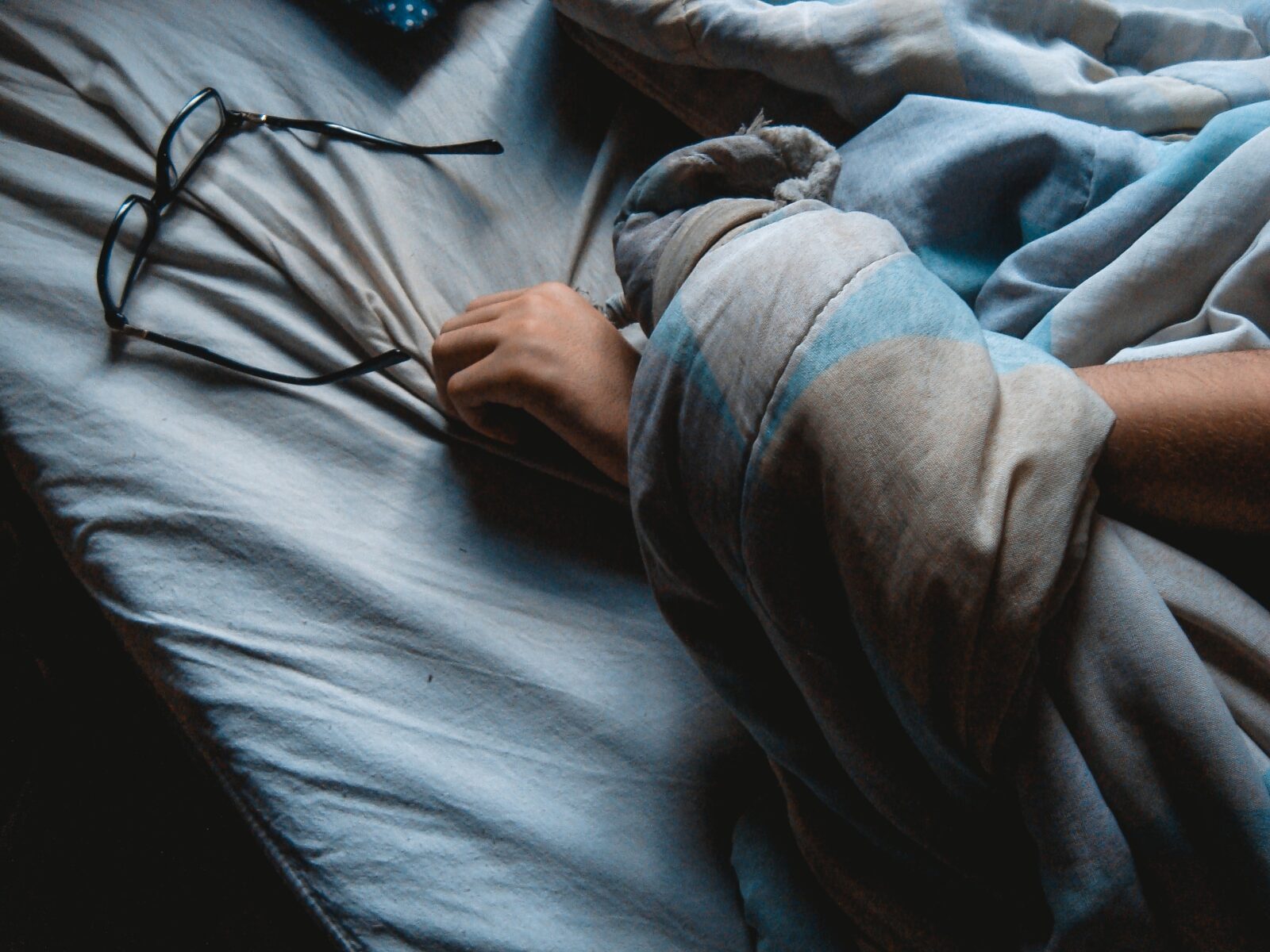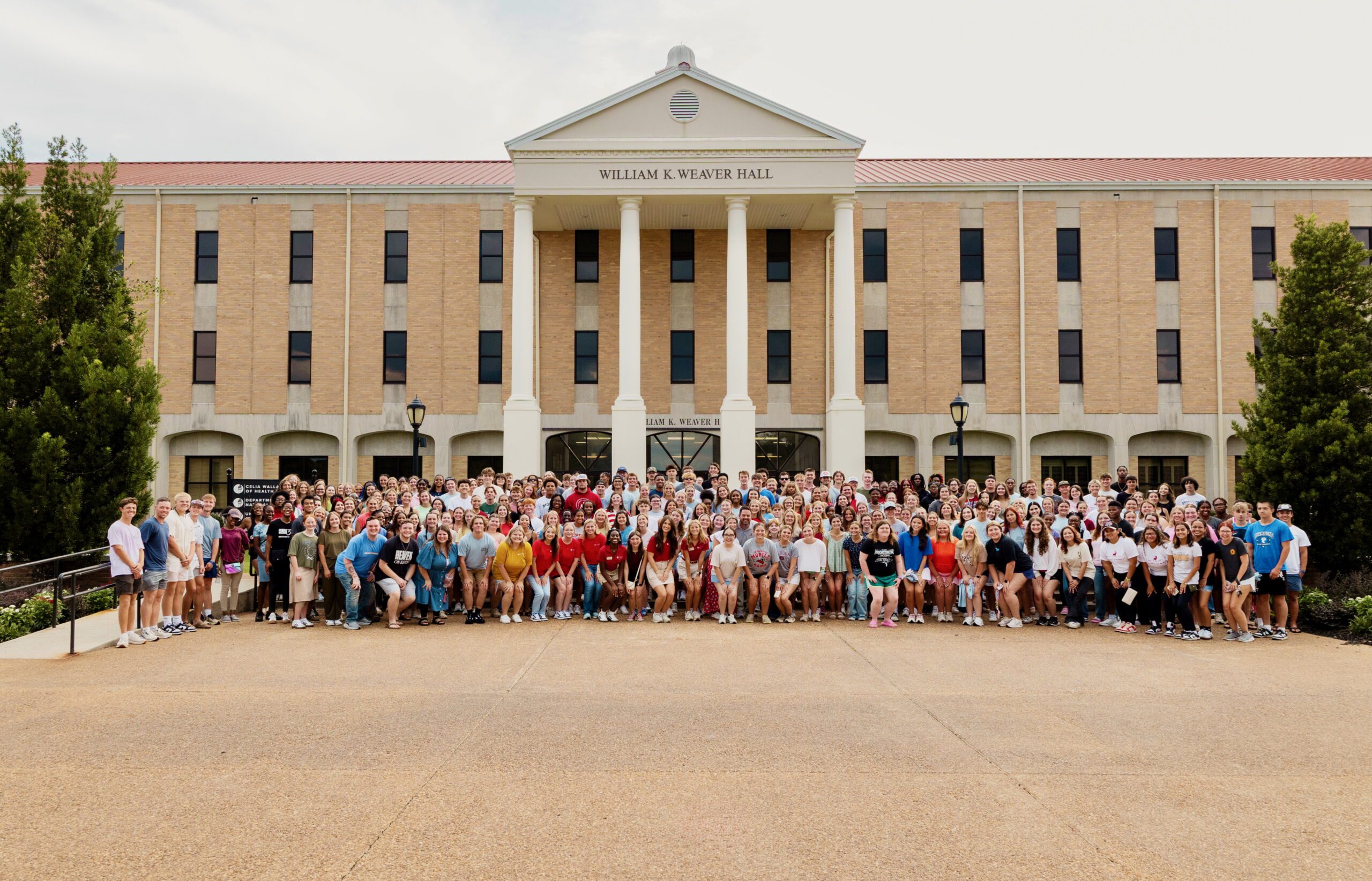For the College Night Owl

Have you pulled 2, 3 or 12 all-nighters during exam season? Studying as a junior at the University of Mobile, it is easy to justify the thought process of staying awake. In addition, it’s almost certain that being stuck in the pandemic has interrupted the sleep patterns of most. Some under-sleep; some oversleep.
My friends and I have said, “I am young, I should enjoy this time that I have before time is eaten up tomorrow.” There’s also the excuse of “At least I’m not doing something stupid at 2 in the morning! I’m just staying up later!”
If staying awake until odd hours of the morning are normal for you, there are good reasons to consider changing your pattern. University of Mobile Wellness Coordinator Joy Jacobs, R.N., says, “It is not abnormal for college students to have skewed sleep patterns. We all know the inconsistent hours students keep. What could be abnormal is what the pandemic is doing. Many people are experiencing stress and anxiety, which in turns affects sleep.”
On average, a college student receives 6 hours of sleep (or less) per night. Much research shows the negative impact on student performance and grades. GPAs are typically lower, and immune systems are compromised.
My friends and I noticed the days becoming dreary, long and monotonous, so we realized something needed to change.
It seems so passive to simply rest and “do nothing,” but sleep is a restful action to increase performance for cognitive function and later activities. Here are tips that helped us that may help you as well.
- Insure a cut-off time for technology. Most of my procrastination is linked to the computer! If I’m not reading homework, then I am glancing through social media. A roommate or friend can keep you accountable.
- Create “free” time during the day that isn’t “sleep time.” I realized that much of staying up late was just wanting to play or reserve that time to myself.
- Because of this pandemic, our schedules and rest patterns are different. Be careful not to oversleep. This will create an unrealistic dependency on catching zzz’s you won’t be able to maintain when the pandemic ends.
- Stop caffeine in the late afternoon. (You knew that was coming, but it is a necessary evil.)
- Make any naps short and sweet. Long naps ruin the nightly routine.
- Try to have activities become accomplished away from your sleep space. TV shows, working out, eating and studying can be done in different locations. You will value your quality rest time while keeping it eraser-free, sweat free, odor-free and crumb-free.
- Cold rooms make lots of people sleep better, so maybe you can persuade your roommate to lower temperatures. This will create a desire to wrap yourself up.
You may have trouble sleeping (or you may have a loud roommate.) Maybe you can’t quit the energy drinks, caffeine or sugar that impacts your daily living (and sleeping). If your habits are more addicted to something that overrides your ability to take care of your attitude, body, and well-being, the University of Mobile Campus Wellness Center can help UM students find ways to adjust. Success starts with rest.
Lydia Walker is a junior communication major in Journalism and media broadcasting at the University of Mobile. She is an intern with UM’s Office for Marketing and Public Relations. She has worked with corporate marketing for Chick-fil-A and as a receptionist for a doctor’s family practice, and she now enjoys being a barista. She has placed 3 times in state competition for harp performance. She also loves physical activity and chocolate.



